Resources
Cord Blood Banking Information
Cord Blood Banking — Information for Consumers: Expecting a baby can be a very exciting time for soon-to-be-parents. It can also be very confusing, with many decisions to make. One choice prospective parents often face is whether to donate, bank or discard their baby’s cord blood. The Food and Drug Administration (FDA) regulates cord blood and has regulations in place to help ensure the safety of cord blood for transplantation.
Cord Blood: What You Need to Know—According to Keith Wonnacott, Ph.D., Chief of the Cellular Therapies Branch in FDA’s Office of Cellular, Tissue, and Gene Therapies.“Cord blood is typically collected after the baby is delivered and the cord is cut, the procedure is generally safe for the mother and baby.” Use this resource to learn everything you need to know about CBB.
Be The Match: Cord Blood Transplants—Every time a family donates their baby’s umbilical cord blood, it gives hope to patients nationwide. The donated cord blood is then tested, frozen and stored for future use. Once stored, it is then listed on Be The Match Registry which makes it available for searching patients everywhere. Although cord blood is used more often in children, both children and adults can benefit from it.
Clinical Trials—We have compacted a list of all clinical trial studies dealing with cord blood that are open for recruitment.
Umbilical cord blood research: Current and future perspectives—Cord blood banking is becoming more and more popular as the multipotent cells found within the umbilical cord blood is proving its efficacy for a range of ailments.
Separating fact from fiction with Cord Blood Banking—As if parents-to-be don’t already have enough decisions to make, thanks to a push from scientists, doctors, and researchers, parents now have the option to save their newborn infant’s umbilical cord blood. Learn the facts about cord blood banking before you make your decision.
Congress & Cord Blood Banking Legislation
H.R.3673 — 113th: Family Cord Blood Banking Act—Amends the Internal Revenue Code to treat the cost of private umbilical cord blood banking services as a medical care expense for purposes of the tax deduction for medical expenses.
H.R.3982 — 114th: This bill amends the Internal Revenue Code to treat the cost of private umbilical cord blood or tissue, or placental blood or tissue, banking services as a medical care expense for purposes of the tax deduction for medical expenses.
Cord Blood Banking For Families In Need
Cord Blood Banking Program for Siblings—If your family has a child with a life-threatening disease that may be treated with a cord blood transplant, you can choose to save your baby’s umbilical cord blood for a biological sibling. Although this service is not completely free, some cord blood banks may charge your insurance company for this service. Others may offer this service at little or no cost. Below is a list of cord blood banks (private and public) that will offer cord blood banking services to eligible families.
Bloodworks
(206) 292-1896
(800) DONATE-1, X1896
www.bloodworksnw.org
Carolinas Cord Blood Bank
Duke University Medical Center
Durham, NC
(919) 668-1116
www.cancer.duke.edu/ccbb/
Cryo-Cell
Oldsmar, FL
(813) 749-2100
(800) 786-7235
cryo-cell.com
GenCure
Texas Cord Blood Bank
(855) 326-5764
gencure.org
Lifeforce Cryobanks
Altamonte Springs, FL
(800) 869-8608
www.cordforlife.com
MD Anderson Cord Blood Bank
Houston, TX
(866) 869-5111
www.mdanderson.org/cordblood
StemCyte Inc.
(626) 646-2500
(866) 389-4659
www.stemcyte.com
Pregnancy Resources
Pregnancy Calendar—This guide will help you understand what to expect and how to prepare for a healthy, happy and (mostly) comfortable pregnancy. Each trimester, you will learn about your baby, your body, and plenty of other pregnancy topics.

